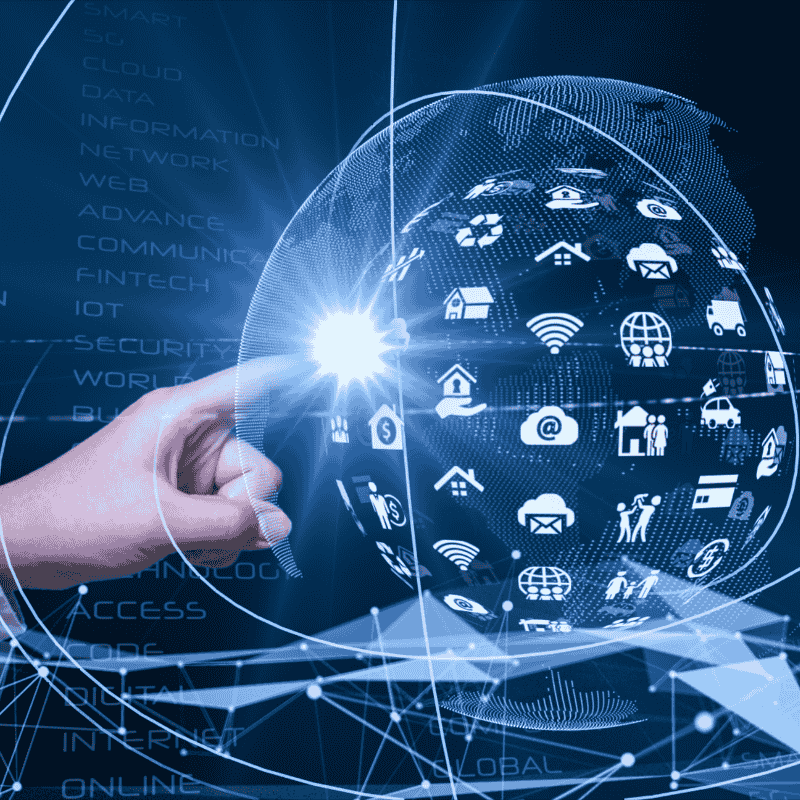When we talk about the future of technology, two words keep coming up: Artificial Intelligence (AI) and 5G. On their own, both are powerful innovations. But when combined, they create a partnership that could change how we live, work, and connect with the world.
The AI and 5G relationship is often described as “the brain and the nervous system” of the digital age. While 5G provides ultra-fast, low-latency communication, AI interprets and makes decisions with the data that flows through it. Together, they form the foundation of smart systems and intelligent industries.
What Makes AI and 5G a Powerful Duo?
- 5G = Speed & Connectivity: Provides faster, more reliable data transfer.
- AI = Intelligence & Decision-Making: Learns, analyzes, and responds to data instantly.
This means data can travel quickly across devices, and AI can act on it in real time—creating new opportunities across industries.
Real-World Applications of AI and 5G
1. Smart Cities
AI-powered systems can analyze traffic, pollution, and energy usage in real time. With 5G ensuring instant connectivity between sensors, cameras, and control centers, cities can automatically adjust traffic lights, monitor safety, and manage resources more efficiently.
2. Healthcare
5G enables remote surgeries and telemedicine by providing real-time video and data transfer. Meanwhile, AI analyzes patient records, images, and test results to assist doctors in making faster, more accurate diagnoses. Together, they make advanced healthcare accessible even in remote areas.
3. Autonomous Vehicles
Driverless cars depend on split-second decision-making. 5G ensures vehicles communicate instantly with each other and traffic systems, while AI makes real-time driving decisions based on sensor data. This collaboration reduces accidents and makes self-driving cars a practical reality.
4. Manufacturing and Industry 4.0
Factories powered by AI and 5G can predict when machines will break down, optimize workflows, and reduce downtime. 5G connects all the machines and sensors, while AI ensures the data is analyzed and used for better decisions.
5. Entertainment and AR/VR
5G makes streaming ultra-high-definition and VR experiences seamless. AI personalizes entertainment content and enhances AR/VR environments for gaming, movies, and even online shopping.
Benefits of AI and 5G Integration
- Real-Time Decision Making: Faster insights and actions.
- Efficiency Boost: Optimized workflows in industries and services.
- Safety & Security: Smarter traffic, healthcare, and defense systems.
- Better User Experience: Personalization in entertainment, shopping, and communication.
Challenges of AI and 5G Partnership
- High Infrastructure Costs: Deploying 5G and AI systems is expensive.
- Cybersecurity Risks: More data transfer means higher chances of hacking.
- Data Privacy Issues: AI requires massive amounts of data, raising privacy concerns.
- Skill Gap: Professionals trained in AI and 5G integration are limited.
The Future of AI and 5G
The combination of AI and 5G is only in its early stages. As 5G networks expand globally, AI will gain access to real-time, high-quality data at scale. This will accelerate innovations like:
- Fully autonomous transportation systems.
- Advanced robotic surgeries.
- Smart energy grids.
- Personalized education platforms.
Experts believe that within the next decade, the AI and 5G synergy will be as essential to human life as electricity or the internet.
Final Thoughts
The partnership of AI and 5G is more than just faster connectivity or smarter machines—it’s about creating a world where decisions are made instantly, resources are optimized, and human life is enhanced.
While challenges remain, the future powered by AI and 5G promises a society that’s safer, more efficient, and more connected than ever before. Businesses and individuals that adapt early to this transformation will lead the way in the digital revolution.

